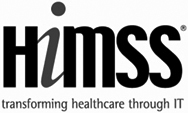Provides Participants with More Opportunities to Take Advantage of Performance-based Payments
The Centers for Medicare & Medicaid Services (CMS) has accepted Reliance’s application to provide Qualified Clinical Data Registry (QCDR) for the 2018 performance period of the Merit-based Incentive Payment System (MIPS). As the only authorized QCDR in Oregon, Reliance provides you with additional opportunities to optimize your EHR interface with Reliance and maximize your revenue.
Reliance is authorized to support 8 clinical quality measures/eCQMs on behalf of participants who wish to use Reliance to submit MIPS reporting. These measures include:
| Quality ID # | Measure Title | Measure Description (REQUIRED) |
|---|---|---|
| 001 | Diabetes: Hemoglobin A1c (HbA1c) Poor Control (>9%) | Percentage of patients 18-75 years of age with diabetes who had hemoglobin A1c > 9.0% during the measurement period. |
| 112 | Breast Cancer Screening | Percentage of women 50-74 years of age who had a mammogram to screen for breast cancer. |
| 113 | Colorectal Cancer Screening | Percentage of adults 50-75 years of age who had appropriate screening for colorectal cancer. |
| 128 | Preventive Care and Screening: Body Mass Index (BMI) Screening and Follow-Up Plan | Percentage of patients aged 18 years and older with a BMI documented during the current encounter or during the previous six months AND with a BMI outside of normal parameters, a follow-up plan is documented during the encounter or during the previous six months of the current encounter. Normal Parameters: Age 18 years and older BMI => 18.5 and < 25 kg/m2 |
| 204 | Ischemic Vascular Disease (IVD): Use of Aspirin or Another Antiplatelet | Percentage of patients 18 years of age and older who were diagnosed with acute myocardial infarction (AMI), coronary artery bypass graft (CABG) or percutaneous coronary interventions (PCI) in the 12 months prior to the measurement period, or who had an active diagnosis of ischemic vascular disease (IVD) during the measurement period, and who had documentation of use of aspirin or another antiplatelet during the measurement period. |
| 226 | Preventive Care and Screening: Tobacco Use: Screening and Cessation Intervention | Percentage of patients aged 18 years and older who were screened for tobacco use one or more times within 24 months AND who received cessation counseling intervention if identified as a tobacco user. |
| 236 | Controlling High Blood Pressure | Percentage of patients 18-85 years of age who had a diagnosis of hypertension and whose blood pressure was adequately controlled (<140/90mmHg) during the measurement period. |
| 309 | Cervical Cancer Screening | Percentage of women 21-64 years of age who were screened for cervical cancer using either of the following criteria: * Women age 21-64 who had cervical cytology performed every 3 years * Women age 30-64 who had cervical cytology/human papillomavirus (HPV) co-testing performed every 5 years |
MIPS is part of the Quality Payment Program, which helps providers focus on care quality. If you participate in Medicare Part B, meet eligibility requirements and decide to take part in MIPS, you will earn a performance-based payment adjustment. Visit https://qpp.cms.gov/ to learn more about the Quality Payment Program and MIPS.
Who’s in the Quality Payment Program?
According to CMS, you werre a part of the Quality Payment Program in 2017 if you were in an Advanced Alternative Payment Model or if you bill Medicare more than $30,000 in Part B allowed charges a year and provide care for more than 100 Medicare patients a year. You must meet both the minimum billing and the number of patients to be in the program. For MIPS, you must also be a licensed:
- Physician
- Physician Assistant
- Nurse practitioner
- Clinical nurse specialist
- Certified registered nurse anesthetist
MIPS includes four performance categories: quality, cost, improvement activities, and advancing care information (ACI). The quality performance category requires clinicians to report on six measures, including at least one outcome measure. It is important you select measures appropriate for your practice needs and capabilities.
What is a QCDR?
As a QCDR, Reliance collects medical and/or clinical data for efficient patient and disease tracking, ultimately fostering improvement in the quality of patient care. The quality measures (including preventive care and screenings) cover multiple payers and are not limited to Medicare beneficiaries.
Why Use Reliance for QCDR Services?
As a QCDR Reliance reduces the burden on billing and reporting staff, provides direct assistance with compiling data, and enables participating practices to report one set of data to fulfill Medicare quality reporting program and specialty organizations requirements.
When your EHR is connected with Reliance to submit patient data, Reliance Insight normalizes and standardizes the data and aggregates it with information from other providers in the community. That means that MIPS reporting using Reliance takes into account the care transitions that affect your reporting. For example, if a colorectal screening is ordered by another provider caring for your patient, that can be included in your reporting metrics; thereby enhancing your quality scores and improving your QPP revenue.
To engage with Reliance’s QCDR services team, contact support@RelianceHIE.org



